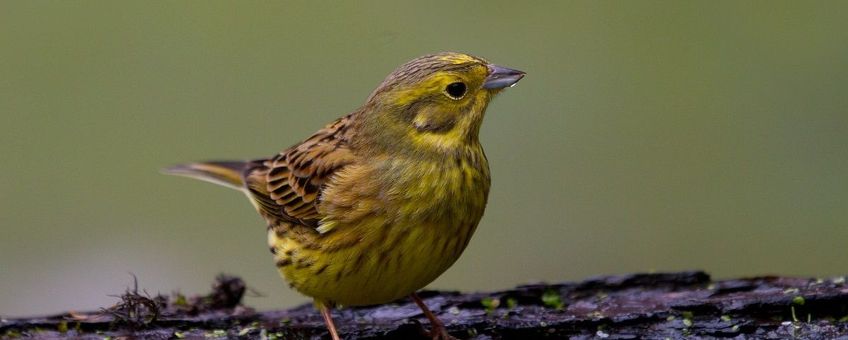
Lost birdsong of Britain revealed
RSPBNew research into bird accents has shown that some regional accents, once thought to be lost in the UK, can still be heard on the other side of the world.
Th e study, published in Ecography, examined yellowhammer dialects in the UK and New Zealand, where the birds were introduced in the 1860’s and 1870’s and later became pests. It found some dialects that likely existed in the UK appear to have gone extinct, yet they still exist in New Zealand, a phenomenon which also occurs in human languages.
e study, published in Ecography, examined yellowhammer dialects in the UK and New Zealand, where the birds were introduced in the 1860’s and 1870’s and later became pests. It found some dialects that likely existed in the UK appear to have gone extinct, yet they still exist in New Zealand, a phenomenon which also occurs in human languages.
The research was led by a Czech research team who encouraged volunteers to collect and submit recordings of singing yellowhammers using smartphones and cameras. Using these recordings from the citizen science project, scientists compared the patterns of yellowhammer dialects in the native range of Great Britain, and in the invaded range of New Zealand.
Although they expected New Zealand yellowhammers to exhibit fewer dialects than those in the mother country, quite the opposite pattern emerged. New Zealand boasts almost twice as many yellowhammer dialects as Great Britain. Experts think the best explanation for their findings is that New Zealand yellowhammers have retained song structures which were originally from the UK. However, these dialects have subsequently been lost in the mother country, possibly due to the widespread decline in yellowhammers in the UK.
Pavel Pipek, of the Charles University in Prague and lead author on the yellowhammer dialects paper, said: “It was fascinating to have this unique opportunity to study yellowhammer dialects from native and introduced populations and how they have evolved over 150 years.
“This phenomenon of lost birds’ dialect is an avian equivalent of what happens with human languages. For example, some English words, which are no longer spoken in Great Britain, are still in use in the former British colonies.”
British yellowhammers have experienced a severe population decline in recent decades, meaning the original variety of dialects might have diminished.
Dr Mark Eaton, RSPB principal conservation scientist and study co-author, said: “Yellowhammers are a delightful farmland bird with unmistakeable bright yellow heads. At one time they were a common sight, but sadly their numbers have declined so rapidly that nowadays they are difficult to find in many parts of the UK.
“It’s likely the decline in yellowhammers has led to some of their original dialects being lost, yet these have survived in the songs of the birds in New Zealand due to the abundant populations. This birdsong may therefore serve as a living archive of songs sung by yellowhammers in 19th century Britain.”
Text: RSPB; Pavel Pipek, Charles University in Prague
Photos: Jan Nijendijk, Saxifraga; RSPB
